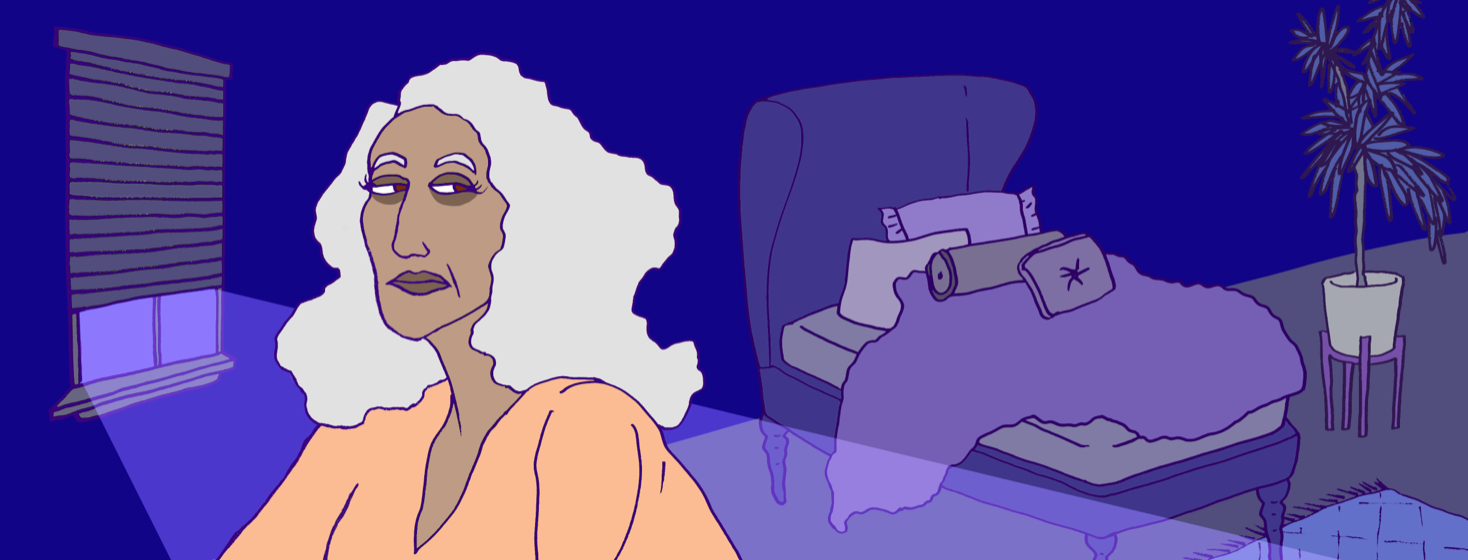Later Years and Insomnia
Insomnia does not discriminate, it affects all kinds of people, with a variety of lifestyles, living situations, ages, and so on. It simply arrives like an unscheduled train ride, one that you may possibly not have been on before. Importantly you may not have packed for this trip or even know where it is going. Some people have been great sleepers their whole lives, not a day of struggle. Then at the beautiful age of someone over 60 or 70, it suddenly starts. Out of nowhere, with no rhyme or reason, the signs of aging impact insomnia symptoms.
Classic signs of insomnia
You may find that you are suddenly not getting the sleep that you are accustomed to getting, and it might leave you feeling rather overwhelmed. These are some of the classic signs of insomnia:
- Struggling to fall asleep, lots of tossing and turning.
- Having trouble staying asleep, so multiple wakings a night.
- Waking up in the morning and feeling like you have not slept at all.
- Very fatigued and tired during the day.
Trip to the doctor
When experiencing a sudden change in sleeping patterns, it is important to consult your doctor. They would need to rule out that it is not a result of an underlying health concern. Real-time appointments are great for this, as the doctor can do a proper examination and check things like your heart rate and blood pressure, etc. Be sure to let them know what medication you are taking too.
I would suggest going to the doctor informed, and making some notes about your current sleeping patterns and what the areas of concern are. This can help them give you a solution and paint a better picture of what you are experiencing. Are you just waking up for no reason at night, or is it for a trip to the bathroom, etc?
Changing sleep patterns and circadian rhythms
A lovely elderly lady lived in an apartment complex where I stayed for many years and as I young girl I used to spend quite some time with her. She would often regale me with stories of the week and it would often begin with late nights and early mornings. She used to tell me that as you got older you simply did not need as much sleep as you did when you were younger. Having accepted that for herself, she filled her early mornings in her garden or reading a book.
As with her, I have often heard that as we get older we go to bed earlier and rise earlier, it would seem that this had something to do with our circadian rhythm that changes as we age. It can take some adjusting and a person might need to look at your sleep hygiene and make some adjustments. This could go a long way to assisting in better sleep and less anxious nights.
Contributing factors to signs of aging
As we age, our lifestyles often change, and it is different for everyone. These changes can also cause changes to our sleep patterns and to the quality of sleep that we get. Here are some things that might add to the equation and I think are worth taking note of.
Movement: You may be moving less if you have retired or changed your daily situation. Try going for a walk and keeping the movement and exercise going. This will promote better sleep
Medication: Often with aging comes the need for medications. It is possible that some of this may have the side effect of negatively impacting your sleep patterns. Chat with your doctor for advice regarding this.
Afternoon naps: Now that you are able to have those long-awaited afternoon snoozes, they may possibly be affecting your sleep patterns at night.
Mental exercise: As we age, keeping our minds active and engaged is, in my opinion, as important as looking after your physical health. Reading and doing puzzles and learning, is a good way to keep the mind healthy and your brain engaged, which could help get a restful night's sleep.
What contributing factors to the signs of aging have impacted your insomnia symptoms? Please share a comment.

Join the conversation